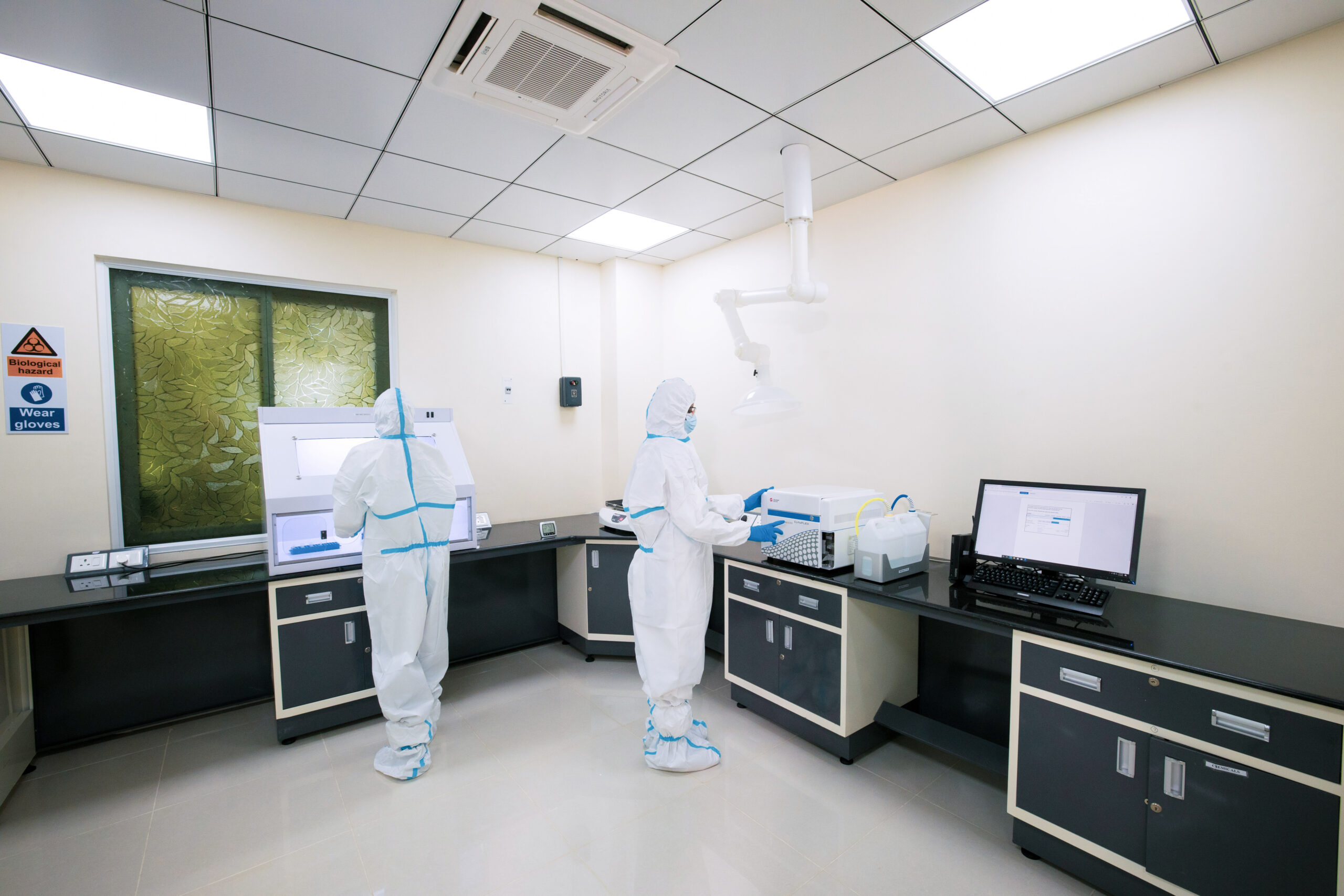Toxicology
Overview Service
Bioscience Research Foundation’s toxicology department is one of the best in the country with advanced facilities for conducting pre-clinical studies. The department is GLP and AAALAC certified, ensuring the highest standards of animal care and welfare. With multiple state-of-the-art vivarium’s, our highly qualified toxicologists, including those with DABT certification, are equipped to conduct acute, chronic, and even multi-year carcinogenicity studies. We have a dedicated team to tend to the vivarium round the clock, ensuring the animals’ well-being..
In addition, the department has several high-end biochemistry analytical equipment, such as liquid chromatography-tandem mass spectrometry (LC-MS/MS), inductively coupled plasma mass spectrometry (ICP-MS), and gas chromatography-mass spectrometry (GC-MS). These instruments enable us to detect and quantify trace levels of chemicals and their metabolites in biological samples with high sensitivity and specificity. We also have deep microscopy capabilities, which allows us to observe and study the interaction of drugs and molecules at the cellular level.
In addition, our toxicology department has the capability to conduct DMPK (Drug Metabolism and Pharmacokinetics) studies, which are essential for evaluating the safety and efficacy of drug candidates. We also have a High-Throughput Screening (HTS) platform that enables us to screen a large number of compounds quickly and efficiently.
The department also has one of the few labs to have multiple state of the art inhalation chambers and qualified scientists to operate them. This allows us to conduct inhalation toxicity studies on small animals, which is critical for evaluating the safety of airborne chemicals and drugs.
At Bioscience Research Foundation, we are committed to delivering high-quality pre-clinical testing services to our clients. Our toxicology department is well-equipped with cutting-edge technology and staffed by highly qualified and experienced scientists, making us a preferred choice for conducting toxicology studies.
Our Lab



Quick overview of services we can provide
- 6 Pack
- Acute toxicity studies (oral, dermal, inhalation)
- Subchronic and chronic toxicity studies
- NOEL & NOAEL
- Developmental and reproductive toxicity studies
- Carcinogenicity studies
- Systemic toxicity assessment
- Organ-specific toxicity evaluation
- Maximum Tolerated Dose (MTD) determination
- Immunotoxicity assessment
- Neurotoxicity evaluation
- Endocrine disruptor studies
- Hematological and clinical chemistry analysis
- Histopathological examination of tissues
- Ames test for mutagenicity assessment
- In vitro mammalian cell gene mutation assay
- In vitro chromosomal aberration assay
- In vivo micronucleus assay
- Comet assay for DNA damage assessment
- Mouse lymphoma assay
- Sister chromatid exchange assay
- DNA adduct formation studies
- Cardiovascular safety assessment (electrocardiography, blood pressure monitoring)
- Central nervous system (CNS) assessment (neurobehavioral testing, functional observational battery)
- Respiratory system assessment (pulmonary function testing, histopathology)
- Renal function assessment (urinalysis, renal histopathology)
- Gastrointestinal system assessment (gastrointestinal motility testing, histopathology)
- Immunotoxicity assessment (immune cell profiling, cytokine analysis)
- Hepatotoxicity evaluation
- Ocular irritation testing
- Phototoxicity testing
- Acute dermal toxicity testing
- Skin sensitization testing (e.g., Local Lymph Node Assay/LLNA, guinea pig maximization test/GPMT)
- Irritation and corrosion testing
- Skin penetration and absorption studies
- Phototoxicity testing
- Skin allergy testing (e.g., human repeat insult patch test)
- Acute inhalation toxicity testing
- Respiratory sensitization testing
- Inhalation exposure studies
- Lung function assessment (pulmonary function , bronchoalveolar lavage)
- Histopathological examination of respiratory tissues
- Particle size distribution analysis
- Respiratory irritancy testing
- Organ toxicity assessment (liver, kidney, lung, heart, spleen, etc.)
- Hematological analysis (complete blood count, coagulation )
- Clinical chemistry analysis (blood biochemistry)
- Immunotoxicity evaluation (immunophenotyping, antibody production assays)
- Endocrine disruptor studies (hormone analysis)
- Neurotoxicity assessment (functional observations, motor activity, learning and memory )
- Reproductive toxicity testing (fertility, mating, and embryo-fetal development studies)
- Immunotoxicity Evaluation:
- Assessment of immunological parameters, including immune cell populations, antibody responses, and cytokine production
- Allergic contact hypersensitivity , such as local lymph node assay (LLNA) or guinea pig maximization test (GPMT)
- Subacute, subchronic, and chronic toxicity studies to evaluate organ-specific effects and identify target organs
- Detailed histopathological examination of major organs, including liver, kidney, lung, heart, spleen, etc.
- Specialized staining techniques for specific tissue components (e.g., iron deposition, calcium deposits)
